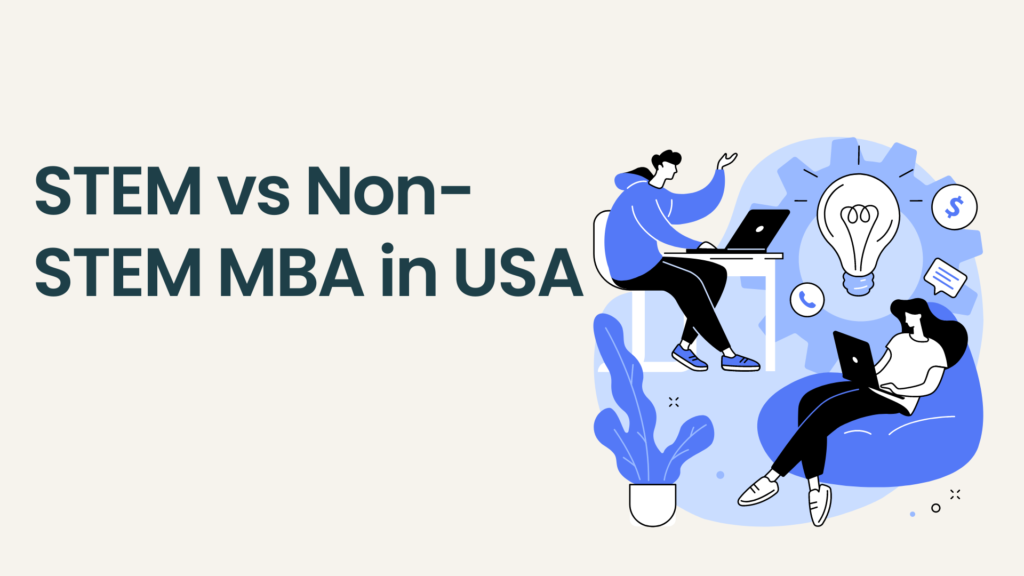Pursuing a bachelor’s or master’s degree in the United States is a dream for many international students. The United States has world-class universities, numerous academic programs, and a diversified cultural experience. However, for international students, the cost of education might be a substantial barrier. Tuition, living expenses, and other connected costs can soon mount up. Fortunately, there are several student loans for international students in USA are available. In this blog, we will talk about many types of loans available, their eligibility requirements, and the process of obtaining financial aid.
Loans Available to International Students
- Private Education Loans: Education loans are provided by private lenders such as banks and financial institutions to international students pursuing higher education in the United States. These loans are primarily based on creditworthiness and may necessitate the presence of a cosigner who is a United States citizen or permanent resident. Tuition, living expenses, and other educational costs can be covered through private loans.
- Institutional Loans: Some universities and institutions in the United States offer institutional loans or scholarships to international students. These loans may have attractive terms, and eligibility requirements differ from one institution to the next. It is critical to inquire about potential institutional loans with the individual university you intend to attend.
- Government Loans: While federal student loans in the United States are not normally available to overseas students, several countries provide government-sponsored loans to their nationals studying abroad. Students from Canada, the United Kingdom, and Australia may be eligible for government loans to pay their study in the United States.
- Alternative Financing Options: In addition to standard loans, overseas students can look into education-focused crowdfunding, sponsorships from home country governments or organizations, and scholarships from private foundations or businesses.
Eligibility and Prerequisites
- Creditworthiness: In the case of private loans, creditworthiness is critical. Because most international students do not have a credit history in the United States, a cosigner with strong credit is sometimes necessary. If the borrower defaults, the cosigner is responsible for repaying the debt.
- Visa Status: To be eligible for loans in the United States, international students must have a valid student visa (F-1 or M-1). To be eligible for loan disbursement, you must retain your visa status throughout your study.
- Admission to an Eligible Institution: Most loans need admission to a recognized U.S. institution. Each lender may have special standards for the institutions with whom they partner.
- Financial Documentation: To establish your ability to repay the loan or meet cosigner criteria, you will need to present financial documentation such as bank records and evidence of income.
- Loan Application and Approval Process: The loan application and approval process vary by lender, but it commonly consists of submitting an application form, presenting required papers, and conducting a credit check. Because loan approval can take some time, it’s critical to apply well in advance of your program’s start date.
Benefits of Loans for International Students
- Access to High-Quality Education: With the help of loans, foreign students can enroll in prominent American universities and institutions that provide top-notch learning and research possibilities.
- Flexible Repayment periods: Some private lenders have flexible repayment periods that let students start paying back after they graduate or permit interest-only payments while they are still in school.
- Establish a Good Credit History: International students who successfully repay a loan can build a good credit history in the United States, which can be helpful for upcoming financial ventures.
- Stress Reduction: Being aware that you have access to loans might help you feel less stressed and free up time to concentrate on your schoolwork and personal development.
Challenges and Things to Think About
- Interest Rates: For international students, interest rates on private loans may be relatively expensive, particularly if a cosigner is not available or has a poor credit history.
- Debt Burden: Taking on loans means carrying a financial burden that may last for several years after graduation. Your ability to repay the loans and your prospective future income are crucial factors to take into account. Loans for international students in USA is available. But your visa status and work permit are important considerations while taking this huge financial burden.
- Cosigner prerequisites: Finding a cosigner who is prepared to assume financial responsibility and satisfies the lender’s eligibility requirements might be difficult.
- Limited Eligibility: Compared to U.S. citizens and permanent residents, international students may have fewer loan possibilities.
As most international students don’t have a US citizenship, they cannot take out federal loans, even though private loans do not have the same flexibility as their federal counterparts, they still get the job done. Here are some private loans an international student can look into (As of Nov 2023). The biggest con of private student loans for international students in USA is the requirement for cosigner.
List of private loans
- Ascent Undergraduate International Student Loans:
- Variable APR: 6.03% to 15.94%
- Fixed APR: 4.48% to 15.66%
- Pros: Offers loans specifically for undergraduate international students with competitive interest rates.
- Also, provides loans to graduate students.
- Cons: Rates can vary depending on creditworthiness.
- Cosigner is required for international students. But it might vary.
- SoFi:
- Variable APR: 5.49% to 13.97% (with autopay and rate sale discount)
- Fixed APR: 4.44% to 14.70% (with autopay and rate sale discount)
- Pros: Offers variable and fixed-rate loans with discounts for autopay, and it’s known for its competitive rates.
- Cons: Rates may be subject to change based on market conditions.
- Cosigner is required for international student. But if someone has a good credit history, after moving to the USA, he might be eligible for a loan. But, the interest rate might be higher without a cosigner.
- Discover:
- Variable APR: 6.37% to 16.62%
- Fixed APR: 4.49% to 14.99%
- Pros: Offers both variable and fixed-rate loans with a well-established banking institution.
- Cons: Rates can be relatively high for some borrowers.
- Cosigner is required for international students.
- Citizens Bank:
- Variable APR: 5.80% to 13.95%
- Fixed APR: 4.43% to 12.57%
- Pros: Provides variable and fixed-rate loans with competitive rates.
- Cons: Rates may vary based on creditworthiness.
- Cosigner is required. But loan without cosinger might be available based on proof of funds and financial ability. This loan might not cover expenses such as personal expense, travel expense and off-campus housing.
- Sallie Mae:
- Variable APR: 6.37% to 16.70%
- Fixed APR: 4.50% to 15.49%
- Pros: Offers variable and fixed-rate loans for international students.
- Cons: Rates can be on the higher side, and it’s essential to compare terms.
- You must have a cosigner as an international student
- Earnest:
- Variable APR: 5.39% to 16.20% (with autopay discount)
- Fixed APR: 4.42% to 15.90% (with autopay discount)
- Pros: Provides variable and fixed-rate loans with autopay discounts.
- Cons: Rates can vary depending on individual circumstances.
- Cosigner is not required for international students from Canada, Mexico, India and South Korea. Other country residents need a cosigner for the student loan.
Being an international student pursuing a bachelor’s or master’s degree in the US is a rewarding experience that leads to endless options. Even though the cost of school can be prohibitive, there are a number of financing choices to make this ambition a reality. The financial assistance required to pay for tuition, living expenses, and other educational expenditures is provided via private education loans, institutional loans, government-sponsored loans, and alternative financing options.
However, it is essential for overseas students to do their homework and fully comprehend the loan possibilities, eligibility requirements, and related obligations. Planning your finances carefully and taking into account how loans may affect your finances in the long run are crucial. International students can realize their academic and professional goals in the United States with the correct loan and a sound repayment strategy, making their ambitions a reality.
Check out our other article on student loans for international students in USA without cosigner.




Pingback: International Student Loans Without Cosigner - toronn
Pingback: Study in Malaysia from Bangladesh - toronn
Pingback: MIT Masters in Supply Chain Management: Tips & Admission Guide - toronn